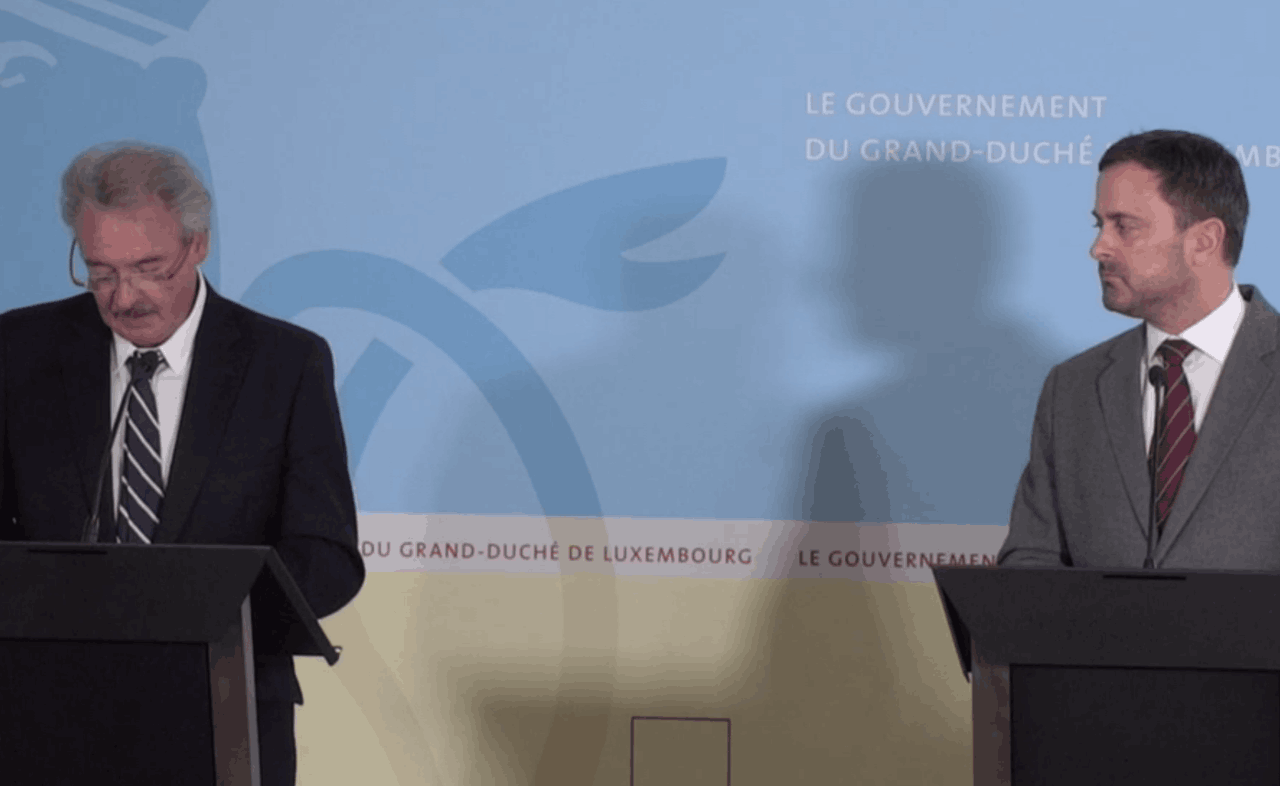A clearly frustrated Xavier Bettel said on Friday afternoon that there was no pressure on EU members to make a move to find a solution to the UK’s intransigence over Brexit. “The pressure is on London to tell us what they want,” the prime minister told a media briefing after the weekly cabinet meeting. He said he respected the parliamentary vote of 15 January, and that of the referendum of June 2016, because they were the result of a democratic process. But there will be negative consequences for both the UK and the EU, Bettel said. “There are no winners of Brexit.”
Together with foreign minister Jean Asselborn, Bettel explained that the government has been preparing at inter-ministerial level for a no-deal Brexit, but also for a scenario in which the UK leaves the EU with an agreement.
Bettel said he had been in direct contact with British prime minister Theresa May over the past few days and that she has promised to keep him abreast of her negotiations with parliamentarians to try and find a plan B withdrawal agreement following the defeat she suffered in the House of Commons last week.
Citizens’ rights a priority
The rights of British citizens in Luxembourg and Luxembourg citizens resident in the UK remain the priority for the government, Bettel said. Asselborn said legislation had been drafted to allow the 6,000 or so British citizens in Luxembourg until December 2020, the end of the transition phase if a deal is agreed, to obtain biometric residential certificates that would allow them to maintain rights in Luxembourg that they currently enjoy as EU citizens. Eight additional staff at the immigration office have been employed solely to deal with applications. Even in the case of a no deal, British residents will be given a year to obtain the certificates after 29 March, so that they are no immediately treated as third-country citizens, Asselborn said. But any granting of rights must be reciprocal, Asselborn said. He has in mind the 2,000 Luxembourgers who currently reside in the UK, among them 1,200 students.
The foreign minister also explained that legislation is also being prepared to allow British public sector employees --among them teachers and international state schools and at the Central Bank--to keep their jobs after 29 March.
The government is also working with the police and customs officials to ensure that British citizens arriving in Luxembourg on one of the nine daily flights from the UK will be able to pass through immigration control as smoothly as possible.
But British citizens arriving to live in Luxembourg after 29 March will not have the same social security rights as EU citizens, Asselborn explained. For example, they will not be able to transfer family allowances to children back in the UK.
Bettel said that Brexit has highlighted the advantages of EU membership. “It shows the practical advantages there are to having EU citizenship, things that we take for granted. EU integration is a marvellous thing, and we will continue to lobby for it.”
